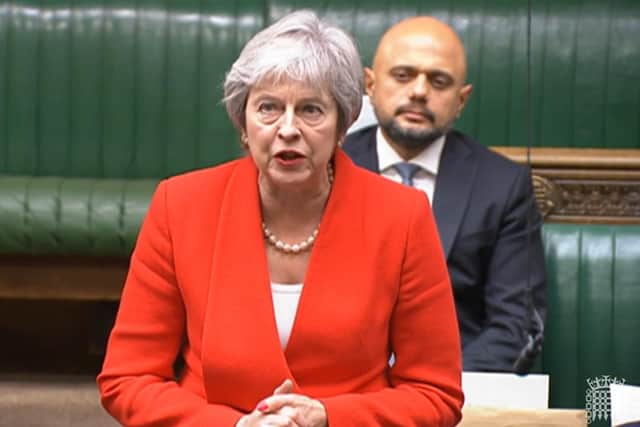UK Tories far from united in opposition to Gender Recognition Reform Bill, as Theresa May intervention shows
Once a supporter of section 28, a hateful law from Britain’s not-so-recent past, the former prime minister has since become a prominent advocate of trans rights.
She was the first serving UK prime minister to make a personal appearance at the PinkNews Awards, and before being ousted had vowed to “streamline” the Gender Recognition Act, to make it easier for transgender people to transition.
Advertisement
Hide AdAdvertisement
Hide AdNow she has spoken out over the Gender Recognition Reform Bill in Scotland – a piece of legislation the UK Government has warned it could block, citing concerns of how the new law could conflict with the 2010 Equality Act.


Mrs May said she was disappointed that similar changes were not being considered in England, having previously supported them herself.
She said: “The very fact that I put the proposal forward shows that that was something that I thought was important to do, particularly to take some of the medical aspects out of this.”
What’s more, she is not alone. There are several ministers in the UK Government who support the Bill, and also a considerable amount of Tory MPs.
Scottish Secretary Alister Jack, Prime Minister Rishi Sunak and international trade secretary Kemi Badenoch may have all criticised the Bill, but The Scotsman understands the decision to oppose it was not taken lightly, and not without argument. As seen in the numerous resignations or abstentions on the Bill in Scotland, this is legislation and an issue that divides party lines.
Mrs May had planned to adopt similar lines, only to see them axed by Boris Johnson.
Another former prime minister, Liz Truss, went to the LGBT disco at Tory conference the year before becoming PM, only to be refused an endorsement because she made saying “a woman is a woman” a key line of her campaign.
Then there are the younger, but still influential MPs like Dehenna Davison, who campaigned against her own party to include trans people in the conversion therapy ban.
The Tory party is a broad church, and lots of MPs are dismayed at what they thought was a modern, progressive party now taking a stance they oppose and believe will damage them in the years to come.
Comments
Want to join the conversation? Please or to comment on this article.
